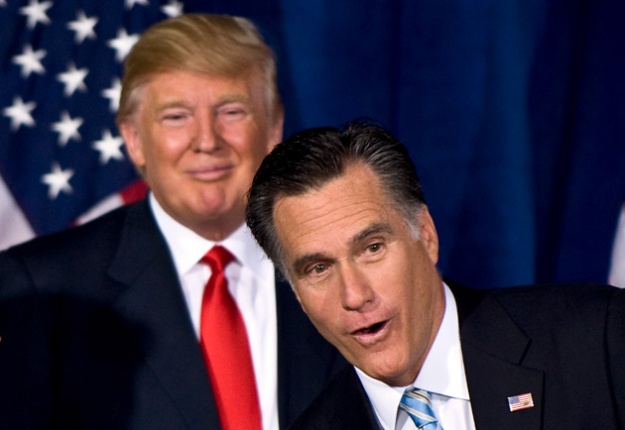For most in the American political sphere being revealed in the press as having views that could be categorised as racist and misogynist tends to destroy any hope of holding any political office, and rightly so. A prepared statement whilst flanked by wife/husband and children is usually the precursor to withdrawal from any race. Years in the political and publicity-barren wilderness are only usually ended by a cathartic appearance on Oprah or Ellen, where a warts-and-all confession is normally followed by a revelation about the charity or cause that they’re now fronting. Tears from guest, hugs from host, applause from audience, are the heralds of forgiveness from the American public. And so the cycle begins again.
Not so Donald Trump, even when his wife Melania issues a public statement condemning his behaviour. For those of us that have followed his political campaign with astonishment and shock over the last sixteen months, the latest release of his remarks about women in 2005 should really not surprise us. Trump in many ways has been a phenomenon in this election process, proving that political know-how, intelligence, taste, justice, good judgement are not prerequisites to be a serious candidate for the most powerful office in the world. The press speculation that Trump may resign is seriously wide of the mark, especially as Trump’s campaign has always been driven by egotism and narcissism. In fact it may well give his campaign the positive momentum it so desperately needs. During the nomination campaign Trump steamrollered the opposition. His campaign took over the written press, was constantly talked about on television, and was the talk of social media. The overlong nomination process allowed Trump’s campaign to build up such a head of steam that it was unstoppable. Bush, Cruz, Rubio, all fell by the wayside as the Trump machine marched on.
Like Carter in 1976 and Reagan in 1980, Trump is running not just in opposition to Hillary Clinton but as an outsider to the Washington elite. Trump’s attraction for many of his followers is that he is a challenge to the political establishment in the nation’s capitol. While the powerbrokers are interested in a conservative status quo being maintained, Trump is seen by many of his supporters as a salvation-like figure that will bring change. Quite how a billionaire – who inherited his wealth and was exposed as not paying taxes for over a decade – can be seen neither a member of the establishment nor a representative of the man in the street is overwhelming. The Republican Party leadership’s rejection of him during the nomination process only succeeded in improving his standing among the 76% of Americans that disapprove of Congress.
But the current desertion of GOP senators and lawmakers from Trump as a result of his lewd remarks could actually strengthen his original position as an outsider. GOP leadership support has actually stifled Trump’s claim to be not one of them. Trump has shown in both the nomination and presidential campaigns that he is a master at preaching to the choir but fails to convince the congregation. His presidential campaign has stumbled in comparison to that of his nomination campaign because of his inability to transfer his attraction to Democrat voters. The problem for Trump was that he had created an echo chamber for his political rhetoric – rhetoric that has rarely progressed past xenophobic, sexist, self-centred utterances. The initial surge in support has declined, and this is due to a meandering presidential campaign that has very little substance to any message.
What’s fortunate for Trump is that he is only in a single figure deficit behind Clinton. Had he been in a bigger deficit he may have found himself deselected by the Republican leadership. Under Rule 9’s ‘or otherwise’ clause on nominations the Republican National Committee could remove Trump from the party nomination. But doing so could damage the Republican brand in a more lasting way than Trump ever could. Removal of a man with almost 45% national support could lose the GOP essential support among the working class voters that it will desperately need in 2020. Furthermore Trump could still run despite deselection and hand Clinton the presidency by splitting the Republican vote. And finally, Trump could end up suing the GOP if they withdraw their support under a vaguely written clause.
The biggest indicator to Trump’s continuing role as a presidential candidate is tonight’s presidential debate. Trump has already suggested he will bring up allegations of Bill Clinton’s misdemeanours in the televised debate. If Trump ‘wins’ this debate then the GOP will in all likelihood continue to support his candidacy. If he fails miserably and he trails Clinton by 10 points or more, then the RNC could decide to promote Trump’s Vice President candidate Mike Pence as their presidential nominee although that would add further weight to Trump’s claims of an establishment-led undemocratic conspiracy. Whatever the outcome tonight’s debate should provide some fireworks.



